INTERNACIONAL
Vancouver driver plows into crowd of people attending Filipino festival, killing multiple victims
A driver ran a car into a crowd at a Filipino festival in Vancouver, Canada, on Saturday night, leaving several victims dead and others injured, local authorities said.
The incident happened shortly after 8 p.m. at the Lapu Lapu Day block party, the Vancouver Police Department said in a social media post.
«A number of people have been killed and multiple others are injured after a driver drove into a crowd at a street festival at E. 41st Avenue and Fraser shortly after 8 p.m. tonight,» police said.
SKYROCKETING ANTISEMITISM IN CANADA SPARKS CONCERN FOR COUNTRY’S JEWS AHEAD OF ELECTION
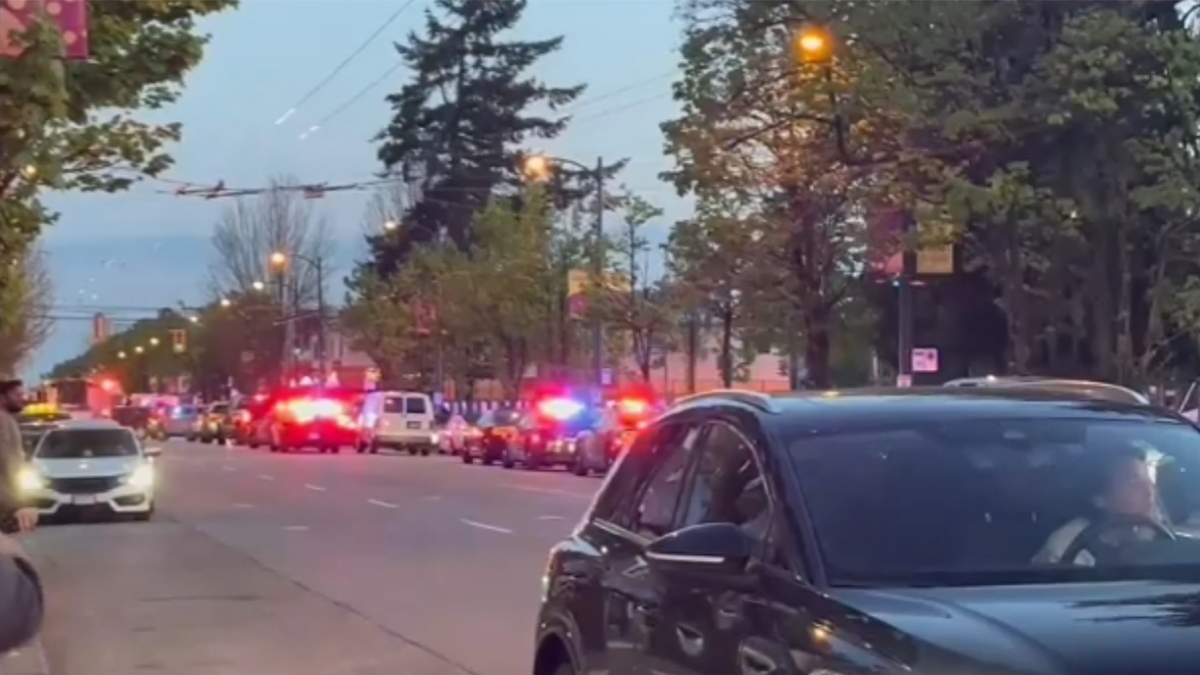
Vancouver police on the scene after an SUV plows into a crowd of people at a Filipino festival. (X/marcmaravillas via Storyful)
The exact number of people dead or injured was not immediately known.
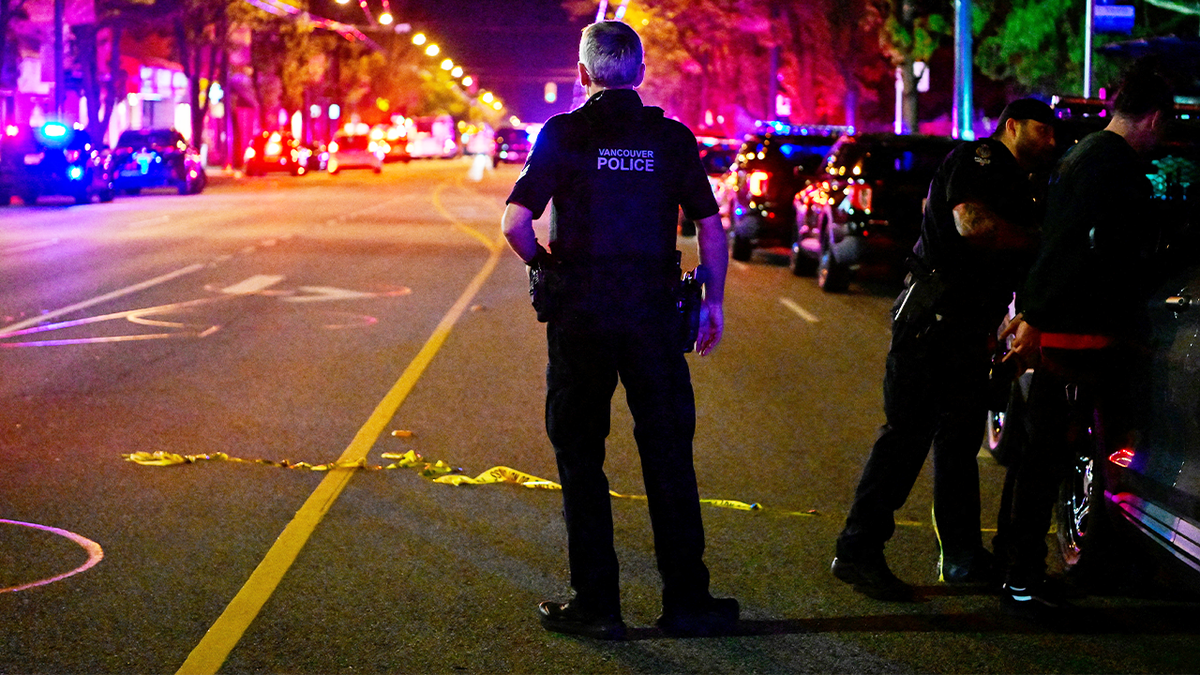
Police work on Fraser street, near the site of the Lapu Lapu day block party where a vehicle drove into a crowd killing several people in Vancouver, British Columbia, Canada April 26, 2025. (REUTERS/Jennifer Gauthier)
The driver was taken into custody, police said. The motive for the person driving into the crowd is unclear at this time.
SENATE APPROVES PETER HOEKSTRA AS NEXT US AMBASSADOR TO CANADA
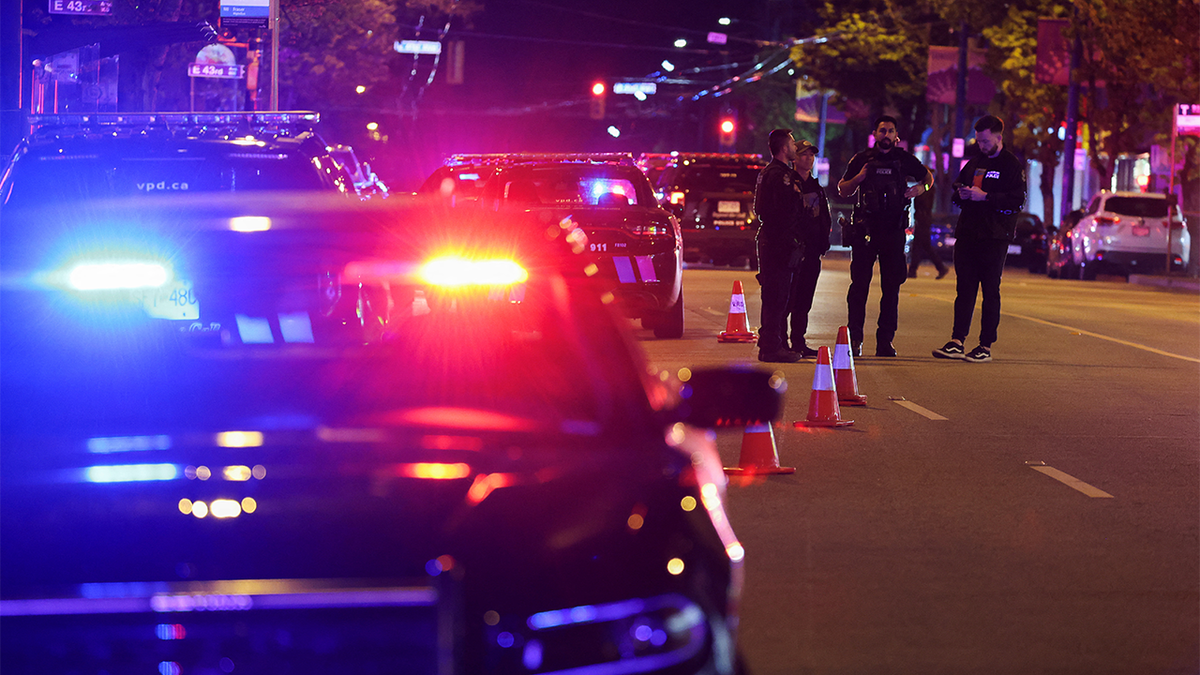
Police officers work at the scene, after a vehicle drove into a crowd at the Lapu Lapu day block party, in what police say has left multiple people killed and injured, in Vancouver, Canada April 26, 2025. (REUTERS/Chris Helgren)
CLICK HERE TO GET THE FOX NEWS APP
Video posted on social media showed victims and debris strewn across a long stretch of road.
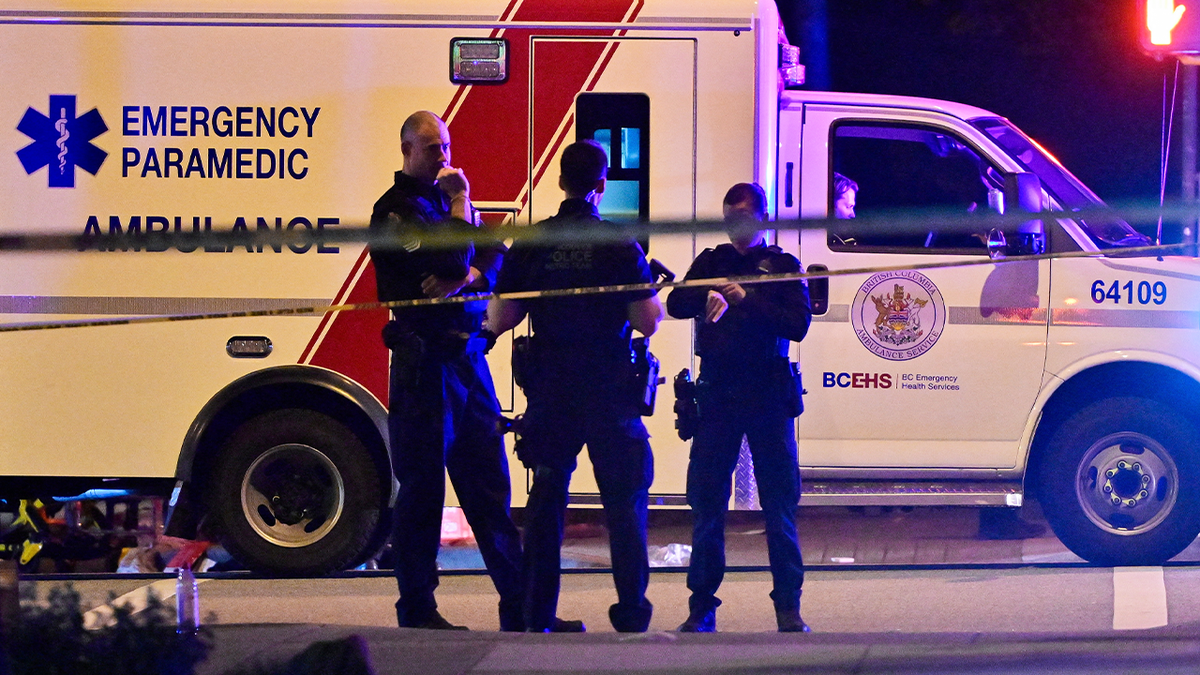
An ambulance is parked at the site of the Lapu Lapu day block party, where a vehicle drove into a crowd killing several people in Vancouver, British Columbia, Canada April 26, 2025. (REUTERS/Jennifer Gauthier)
A black SUV with a damaged front section was seen in still photos from the scene.
This is a developing story. Check back for updates.
Fox News Digital’s Bradford Betz and The Associated Press contributed to this report.
INTERNACIONAL
NASA chief vows four Moon missions before Trump’s term ends in ambitious 2028 timeline

NEWYou can now listen to Fox News articles!
EXCLUSIVE: NASA Administrator Jared Isaacman laid out the timeline for the Artemis Moon landing and discussed the current delay to the Artemis II mission during an exclusive interview with Fox News Digital.
The agency announced Friday that Artemis III, Artemis IV and Artemis V will all be launched before the end of President Donald Trump’s second term. Artemis IV and Artemis V will be missions where astronauts return to the surface of the Moon.
«To be overwhelmingly clear, we did not stretch out our timeline or delay anything. What we did is insert additional missions, standardized, so we can actually achieve the national policy that President Trump set out to return American astronauts to the Moon, and build an enduring presence to stay,» Isaacman told Fox News Digital.
«Artemis II, we’re going to launch in a matter of weeks [and] go around the Moon,» Isaacman explained. «Artemis III will launch by mid 2027 with the aim to buy down risk and low Earth orbit for subsequent [Moon] landing attempts in 2028.»
NASA Administrator Jared Isaacman told Fox News Digital that Artemis II will launch in early April and that additional standardized missions will enable astronauts to return to the Moon by 2028 under President Trump’s timeline. (Patrick T. FALLON / AFP)
The Artemis program was initially established by President Donald Trump during his first term in December 2017.
Isaacman is seeking to complete four Artemis missions under his tenure at the agency, while the Biden administration successfully completed just one non-manned test flight in 2022.
The NASA administrator was critical of the Biden administration for the delay in launches, telling Fox News Digital «the previous administration didn’t make any decisions over the last four years that need to be done.»
INSIDE NASA’S FAST-TRACK PLANS FOR LUNAR NUCLEAR POWER AND NEW SPACE STATIONS TO OUTPACE GLOBAL RIVALS

Jared Isaacman defended the Artemis delays as necessary adjustments, criticizing the Biden administration for inaction and emphasizing a faster, more consistent launch cadence to build a sustained lunar presence. (REUTERS/Joe Skipper)
«That’s being corrected now,» Isaacaman said. «You need to standardize, you need to launch with cadence. That’s how you get back to the moon. That’s how you stay. President Trump’s 100% behind that.»
Artemis II was scheduled to launch in early February, though the Space Launch System (SLS) rocket was transferred from the launchpad back to the Vehicle Assembly Building (VAB) to repair a helium leak on Wednesday.
In response to the Artemis II delay, the administrator also pointed out that the three-year delay between the Biden administration’s last successful Artemis mission and the current one set the agency back.
SENATE CONFIRMS JARED ISAACMAN AS NASA CHIEF MONTHS AFTER TRUMP-MUSK RIFT THAT MAY HAVE PULLED HIS NOMINATION
«You can’t launch a rocket this complex and important every three years, and expect to get it right,» Isaacman added. «There’s just, there’s just no muscle memory there. There’s going to be mistakes.»
«We’re not going to rush this, because, clearly, we’re, again, we’re relearning the same lessons, which means we didn’t get the technical root cause last time, three years ago,» Isaacman said. «We’re hoping, in a matter of days, we’ll have our arms around [Artemis II].»
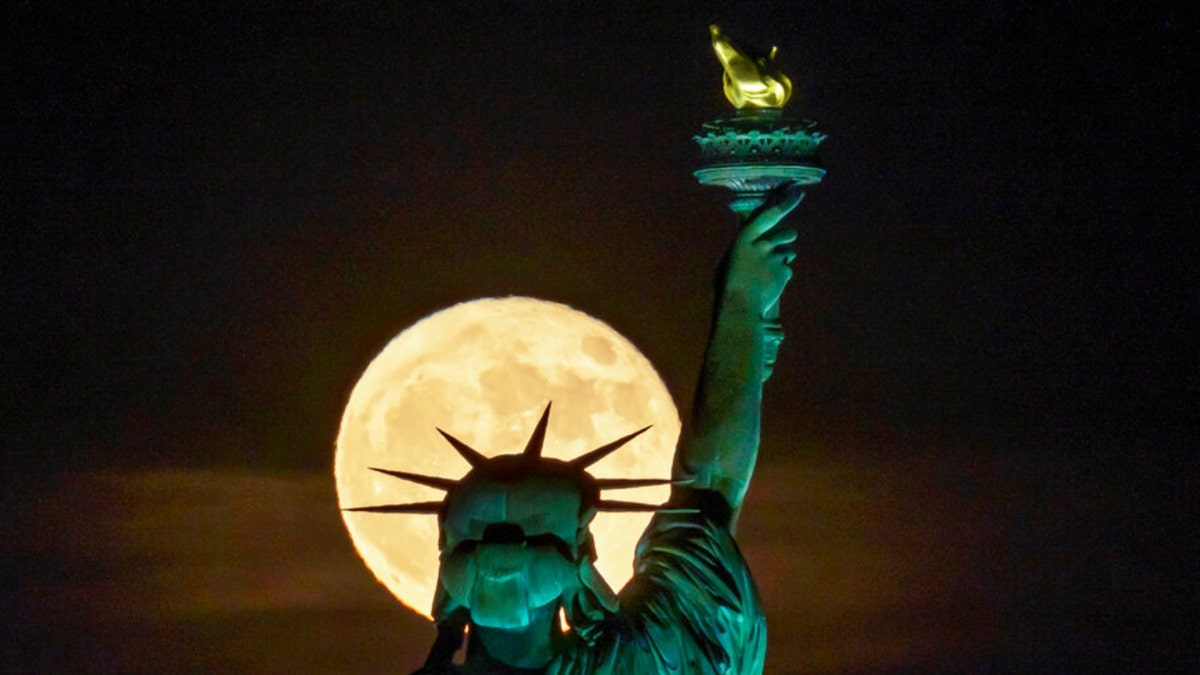
The agency plans to complete four Moon missions during President Donald Trump’s second term. (AP Photo/J. David Ake)
Isaacman said that the current launch window for Artemis II is set for early April.
NASA RETURNS HUMANS TO DEEP SPACE AFTER OVER 50 YEARS WITH FEBRUARY ARTEMIS II MOON MISSION
The 43-year-old billionaire was sworn in as the administrator of the space agency last December. Isaacman himself is a space fanatic, having commanded the first ever commercial spacewalk in September 2024.
In the less than one hundred days that he has served as administrator, Isaacman has been vocal about his dedication to Trump’s mission to return Americans to the surface of the Moon and beyond — a daunting task for a mission that was last completed during Apollo 17 in 1972, more than half a century ago.
«The approach we were taking is the right way, and it’s consistent with NASA’s history,» Isaacman told Fox News Digital. «We didn’t go right to Apollo 11. We launched with frequency, and we continued to learn and buy down risk.»
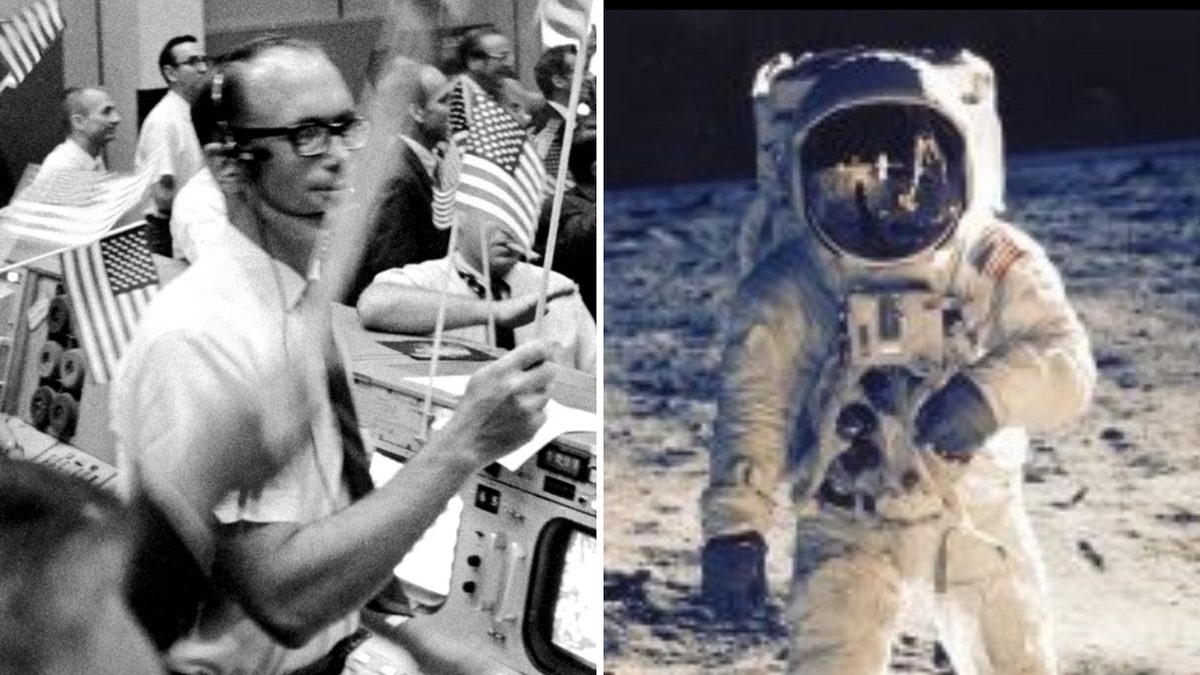
America has not landed on the Moon since 1972. (Getty Images)
NASA SAYS AMERICA WILL WIN ‘THE SECOND SPACE RACE’ AGAINST CHINA
«NASA, throughout our history, has launched, on average, every three months, our design vehicles from Mercury, Gemini, Apollo, through space shuttle. Apollo 8 launched less than two months after Apollo 7’s splashdown,» Isaacaman said.
«This is how you get back to the Moon and be able to stay,» the NASA administrator added.
He also noted that funding for the missions and resources needed for success already exist at the agency, and that «we got everything we need.»
TRANSPORTATION SECRETARY DUFFY TO ANNOUNCE NUCLEAR REACTOR DEVELOPMENT PLAN FOR THE MOON
One of the key components to ensuring the completion of each Artemis mission is labor, and Isaacman took issue with the large number of contractors that work with the space agency, yet are not employed by NASA itself.
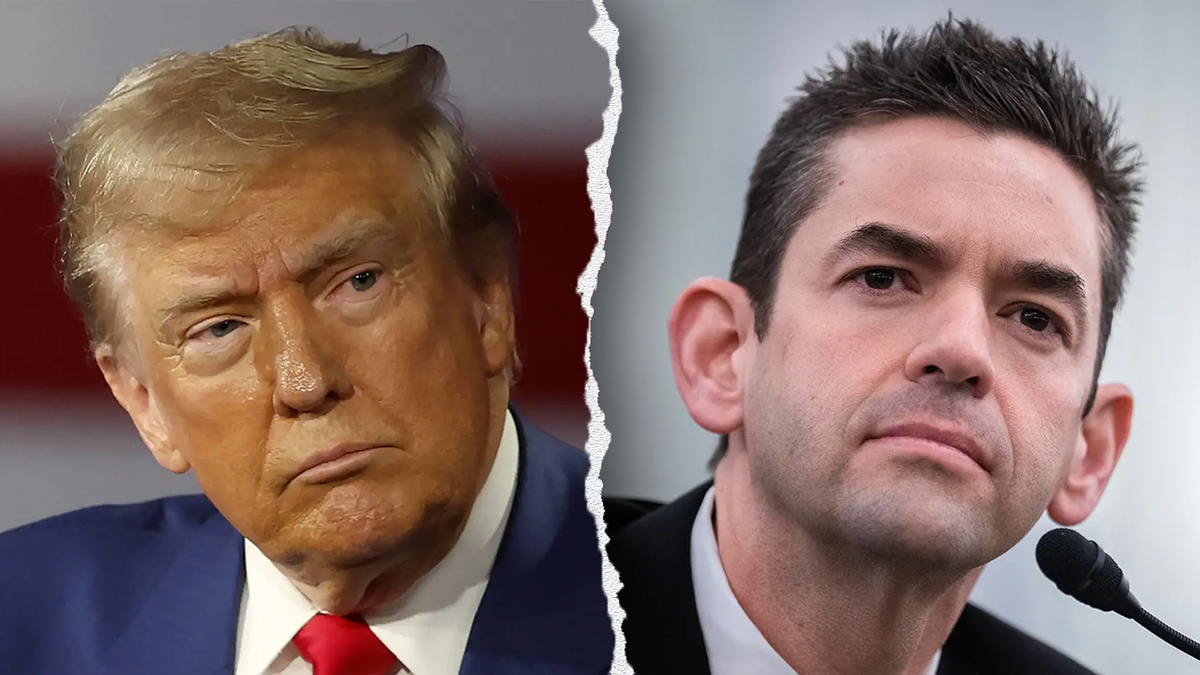
Jared Isaacman, who has been outspoken about his support for President Donald Trump’s plan to return to the Moon, was sworn in as NASA administrator last December. (Kevin Dietsch/Getty Images, Tom Williams/CQ-Roll Call, Inc via Getty Images)
When asked if he planned on transitioning contractors to NASA employees, Isaacman said, «100%.»
«One of the first observations I had in the job after visiting every one of the NASA centers is all of the core competencies that we either outsourced or lost over the years,» Isaacman explained. «Contractors are great and should contribute to NASA in areas that we are not supposed to be the best in the world at.»
«But when we’re talking about launchpad, launch control, mission control in Houston, those should be civil servants,» Isaacman told Fox News Digital. «That should be a core competency in NASA. We should be the best in the world at it. We are going to exercise the workforce directive that went out weeks ago to convert contractors to civil servants, rebuild core competencies.»
CLICK HERE TO DOWNLOAD THE FOX NEWS APP
The NASA administrator said that top companies who provide contractors, like Boeing, Elon Musk’s SpaceX, and Jeff Bezos’s Blue Origin, have told him that they support the timeline that would ultimately achieve Trump’s vision of returning mankind to the Moon.
«We have universal support in this,» Isaacman explained. «Support from every one of the prime contractors in this program. Lockheed, Boeing, ULA, SpaceX, Blue Origin and all of the congressional leaders that have space equities understand that this is the way back to the Moon.»
Preston Mizell is a writer with Fox News. Story tips can be sent to Preston.Mizell@fox.com and on X @MizellPreston
spaceflight,air and space,donald trump
INTERNACIONAL
Estados Unidos e Israel llevaron a cabo ataques coordinados contra el régimen de Irán

Estados Unidos e Israel lanzaron este sábado un ataque “de gran envergadura” contra el régimen de Irán, provocando explosiones en Teherán y otras ciudades tras semanas de amenazas de intervención militar. Teherán respondió con el lanzamiento de misiles y drones en represalia, según informaron los Guardianes de la Revolución. Mientras tanto, diplomáticos estadounidenses presentes en el Golfo y civiles israelíes recibieron órdenes de buscar refugio.
“El Estado de Israel lanzó un ataque preventivo contra Irán. El ministro de Defensa, Israel Katz, declaró el estado de emergencia especial e inmediato en todo el país”, indicó la oficina del ministro en un comunicado.
En un mensaje en video, luego de que Estados Unidos e Israel comenzaran a bombardear Irán, Trump dejó claro que el objetivo era amplio: derrocar al régimen instaurado desde la revolución de 1979. “Vamos a destruir sus misiles y arrasar su industria de misiles por completo. Será totalmente—de nuevo—aniquilada. Vamos a destruir su armada”, afirmó en el mensaje publicado en su plataforma Truth Social.
Asimismo, envió un mensaje directo a la población iraní: “La hora de su libertad está cerca”. “Permanezcan resguardados. No salgan de sus hogares. Es muy peligroso afuera. Caerán bombas por todos lados. Cuando terminemos, tomen el control de su gobierno. Les pertenecerá a ustedes”, agregó.
Posteriormente, el primer ministro israelí, Benjamin Netanyahu, afirmó este sábado que Israel y Estados Unidos habían atacado a Irán con el objetivo de “eliminar la amenaza existencial” que representa la república islámica.
“Hermanos y hermanas, ciudadanos de Israel: Hace instantes, Israel y Estados Unidos lanzaron una operación para eliminar la amenaza existencial que representa el régimen terrorista de Irán”, señaló Netanyahu en un mensaje en video difundido por el gobierno israelí.
Según el primer ministro, la acción conjunta creará las condiciones para que el valiente pueblo iraní tome su destino en sus propias manos.
La Guardia Revolucionaria del régimen iraní anunció el inicio de la primera oleada de misiles y drones contra Israel, tras los ataques coordinados de las fuerzas israelíes y estadounidenses. “En respuesta a la agresión del enemigo hostil y criminal contra la República Islámica de Irán, ha comenzado la primera oleada de amplios ataques con misiles y drones de la República Islámica de Irán hacia los territorios ocupados”, indicó el cuerpo militar en un comunicado.
Pocas horas después de los primeros ataques contra el régimen iraní, Israel había detectado misiles lanzados desde Teherán y llamó a su población a refugiarse.
El Ejército israelí explicó que el estado de emergencia se trata de una “alerta proactiva para preparar al público ante la posibilidad de lanzamiento de misiles hacia el Estado de Israel”. En un comunicado difundido en redes sociales, las Fuerzas de Defensa de Israel anunciaron que, a partir de las 08.00 horas (hora local), “se realizarán cambios inmediatos a las Pautas del Comando del Frente Interno”, incluyendo la “prohibición de actividades educativas, reuniones y lugares de trabajo, excepto los sectores esenciales”.
Las autoridades israelíes también ordenaron el cierre del espacio aéreo al tráfico civil e instaron a los civiles a no acudir al aeropuerto. El Ministerio de Transporte informó que permanecerá cerrado hasta que las condiciones de seguridad lo permitan y que su reapertura será anunciada con al menos 24 horas de antelación.

La operación militar israelí ocurrió contra una zona cercana a las oficinas del líder supremo, el ayatollah Ali Khamenei, según la agencia The Associated Press. Por otra parte, el medio mencionó Estados Unidos está participando en los ataques israelíes contra Irán, según un funcionario estadounidense.
El líder supremo de Irán no está en Teherán y fue trasladado a un lugar seguro, según el informe de Reuters. Las autoridades iraníes bloquearon los accesos por carretera al complejo de Khamenei, en el centro de la capital iraní, mientras continuaban escuchándose más explosiones en distintos puntos de la capital.
Ataque de Irán a EEUU en Bahréin
Horas después de los ataques coordinados, Teherán también bombardeó con misiles la base de Estados Unidos en Bahréin, Emiratos Árabes Unidos, Kuwait y Qatar. “Cualquier base en toda la región que ayude a Israel será nuestro objetivo”, dijo el portavoz del Estado Mayor de las Fuerzas Armadas iraníes citado por la agencia iraní Mehr.
Según este medio, el régimen de los ayatolás lanzó ataques con misiles simultáneamente a la mayor bases en la región, la de Al Udeid en Qatar, a la de Al Salem en Kuwait, la de Al Dhafra en EAU y a la quinta base estadounidense en Bahréin.
En medio de esta creciente tensión, la Unión Europea (UE) pidió “la máxima moderación”, y afirmó que garantizar la seguridad nuclear es “crucial”. “Garantizar la seguridad nuclear y prevenir cualquier acción que pueda agravar aún más las tensiones o socavar el régimen mundial de no proliferación es de importancia crucial”, señaló la presidenta de la Comisión Europea, Ursula von der Leyen.
“Pedimos a todas las partes que ejerzan la máxima moderación, que protejan a la población civil y respeten plenamente el derecho internacional”, añadió en una declaración conjunta con el presidente del Consejo Europeo, António Costa.
War,Middle East,Military Conflicts
INTERNACIONAL
«Dejen las armas y tendrán inmunidad, o enfrentarán una muerte segura»: el mensaje completo de Trump tras el ataque de Estados Unidos a Irán
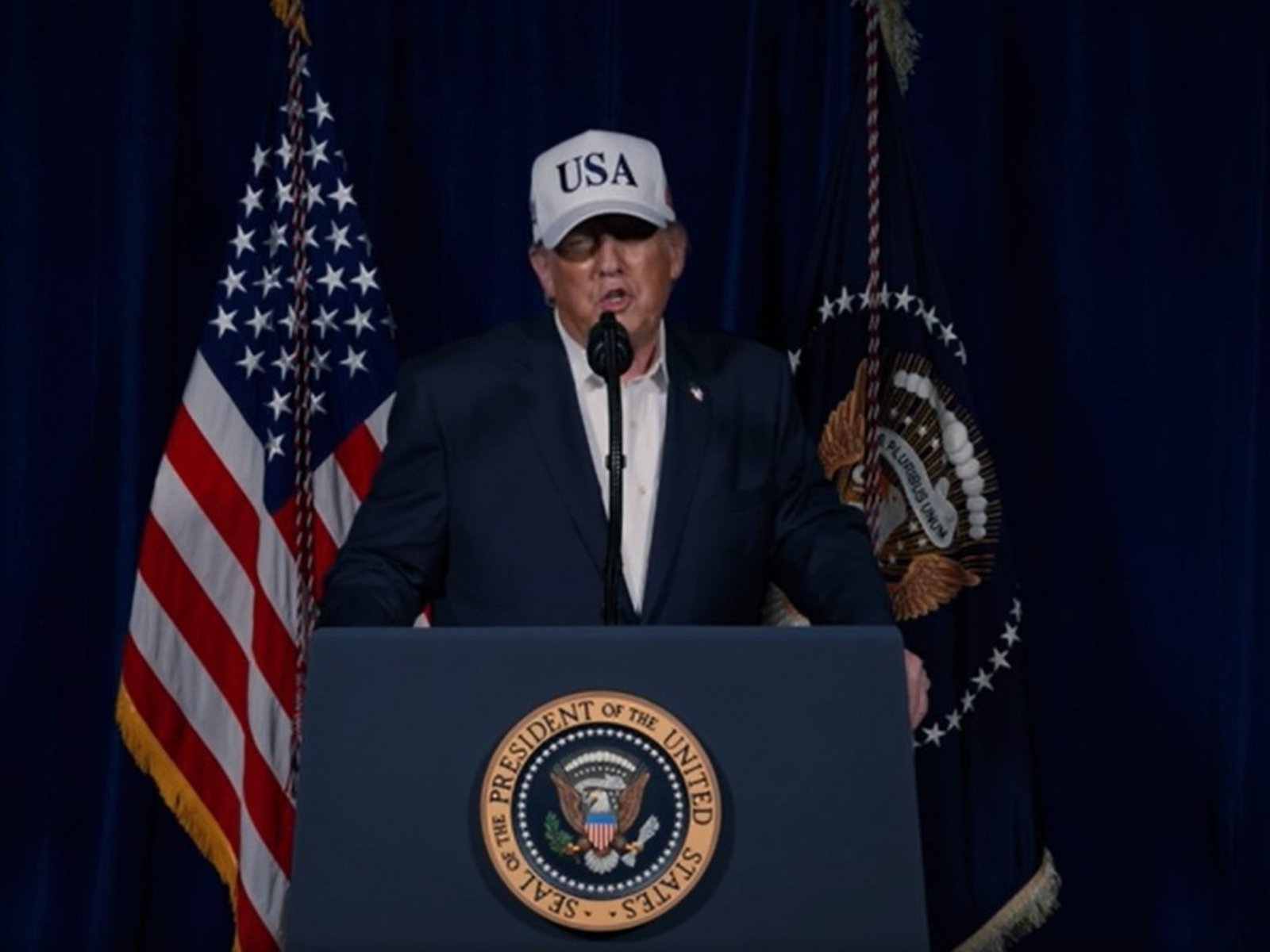

 ECONOMIA3 días ago
ECONOMIA3 días agoCrisis en la industria: otra multinacional se achica y cierra una planta en la Argentina

 CHIMENTOS1 día ago
CHIMENTOS1 día agoAlarma por la salud de Divina Gloria tras salir de Gran Hermano: “La internaron directamente en terapia intensiva”

 CHIMENTOS3 días ago
CHIMENTOS3 días agoCatherine Fulop contó el difícil momento que atraviesa su madre en Venezuela: “Está postrada”














